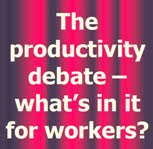.
First Security bail on workersFirst Security has been accused of putting profit before workers welfare in the aftermath of the Christchurch earthquake.
Unite National Security Coordinator Barry Sutherland has been refused the right to speak to members of First Security Guard Services Limited in the Christchurch based National Communications Centre. “Feedback from the staff has indicated that they have been forced to work, some having no option but to bring their children to the workplace. Staff did not have access to the EAP services for the First 5 days after the 7.1 Earthquake”, said Barry Sutherland.
“The General Manager arrived in Christchurch 5 days after the devastating ordeal occurred, gave his John Key wave and left. Staff from First Security are feeling undervalued and used by their bosses,” stated Mr Sutherland.
Since Monday the companies Unite deal with have nearly always responded admirably, offering adequate compensation for loss of earnings, EAP services, and time off to focus on their homes and families affected by the quake.
Unite has been inundated by calls from concerned workers, most of which have been quick to fix. However, it is becoming clearer by the day that there are those that value their businesses much more then they care for the welfare of their staff.
At the beginning of the week Unite Union Organiser Matt Jones announced that Unite would “NAME & SHAME” any employer that abuses workers rights during this natural disaster.
“First Security have the honour of being the first company to have been found to put profit before welfare” stated Mr Jones.
"Policy-induced High Unemployment" – more delights from the neoliberal economy
The Welfare Justice alternative welfare working group have released an alternative issues paper written by one of its members, Professor Paul Dalziel.
The paper is a personal reflection to inform public debate about possible welfare changes being proposed by the government appointed Welfare Working Group.
While the government Welfare Working Group Issues Paper questions the growth in sickness related benefits, arguing there has been no deteroriation in the health of New Zealanders, Professor Dalziel sees this trend in the context of wider economic restructuring, in particular the abandonment of the premise that public policy could maintain low rates of unemployment.
While the government Welfare Working Group Issues Paper questions the growth in sickness related benefits, arguing there has been no deteroriation in the health of New Zealanders, Professor Dalziel sees this trend in the context of wider economic restructuring, in particular the abandonment of the premise that public policy could maintain low rates of unemployment.
 "For people who have little or no economic reserves, an extended period of unemployment and low income causes stress, resulting in persistent poor health that limits their capacity to work. High unemployment in the 1980s and 1990s triggered this negative spiral for many households, increasing the number of people on Sickness Benefits," Professor Dalziel's issue paper explains. He notes that the Welfare Working Group's paper itself highlights the damaging impact of long-term unemployment.
"For people who have little or no economic reserves, an extended period of unemployment and low income causes stress, resulting in persistent poor health that limits their capacity to work. High unemployment in the 1980s and 1990s triggered this negative spiral for many households, increasing the number of people on Sickness Benefits," Professor Dalziel's issue paper explains. He notes that the Welfare Working Group's paper itself highlights the damaging impact of long-term unemployment..png)






















